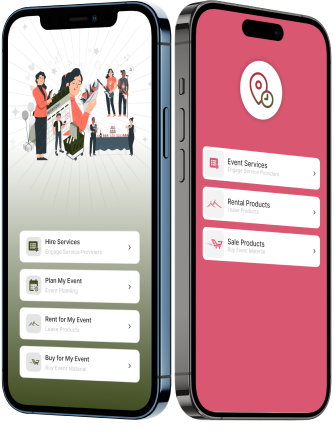Advertisement

Team @ EventNeedz
A Step by Step Guide for Planning and Executing a Successful Event

Hey there!. We're here to help make the process of planning and executing a corporate event as smooth and stress-free as possible. Whether you are a seasoned professional or new to event planning, we've covered you with all the insider tips and tricks to make your event a huge success.
Let's get started!
Planning: Set a clear goal for the event: The event's purpose could be to launch a new product, celebrate a company milestone, or increase brand awareness.
Define the target audience: The target audience could be existing customers, potential customers, employees, or industry professionals. For example, if the event is focused on launching a new product, the target audience would be potential customers in the industry related to that product.
Create a budget: Determine how much money you have to work with and allocate funds for different aspects of the event, such as venue rental, catering, entertainment, and decorations. Ensure to include a contingency fund to cover unexpected expenses during the event. Get quotes from other vendors and compare prices to get the best value for your money.
Choose a venue: For example, if the target audience is primarily made up of industry professionals, a platform that is easily accessible by public transportation and has plenty of parking would be ideal.
Plan the details: For example, the event's theme could be "Innovations in Technology," with keynote speakers discussing the latest advancements in the field and networking opportunities for attendees to connect with industry leaders.
Execution:
Coordinate with vendors: Confirm the menu and delivery times with the caterer, the setup and sound check times with the entertainment, and the decorating schedule with the decorator.
Promote the event: For example, create a Facebook event, send email invitations to the target audience, and issue press releases to relevant media outlets.
Prepare the venue: For example, set up registration tables, arrange seating and tables for dining, and decorate the space according to the event's theme.
On-site coordination: For example, assign a team to handle registration, direct attendees to the appropriate locations, and immediately troubleshoot any issues that may arise during the event.Follow-up: For example, send out a survey to attendees to gather feedback on the event and measure its success in achieving its goals. Additionally, share photos, videos, and event highlights on social media platforms and the company website.
We know planning an event can be a daunting task. Still, with the correct planning and execution, it can be a fun and rewarding experience. If you have more questions or need more help, don't hesitate to contact us at www.eventneedz.com. We will make your task easier as we get you quotes from multiple vendors and a free event coordinator who will work exclusively on your event. Try to experience the convenience of evolving technology in the event industry.
About
A blog is an online Article or informational website displaying information in reverse chronological order, with the latest posts appearing first, at the top. It is a platform where a writer or a group of writers share their views on an individual subject.

Advertisement



 Google
Google  Facebook
Facebook 






